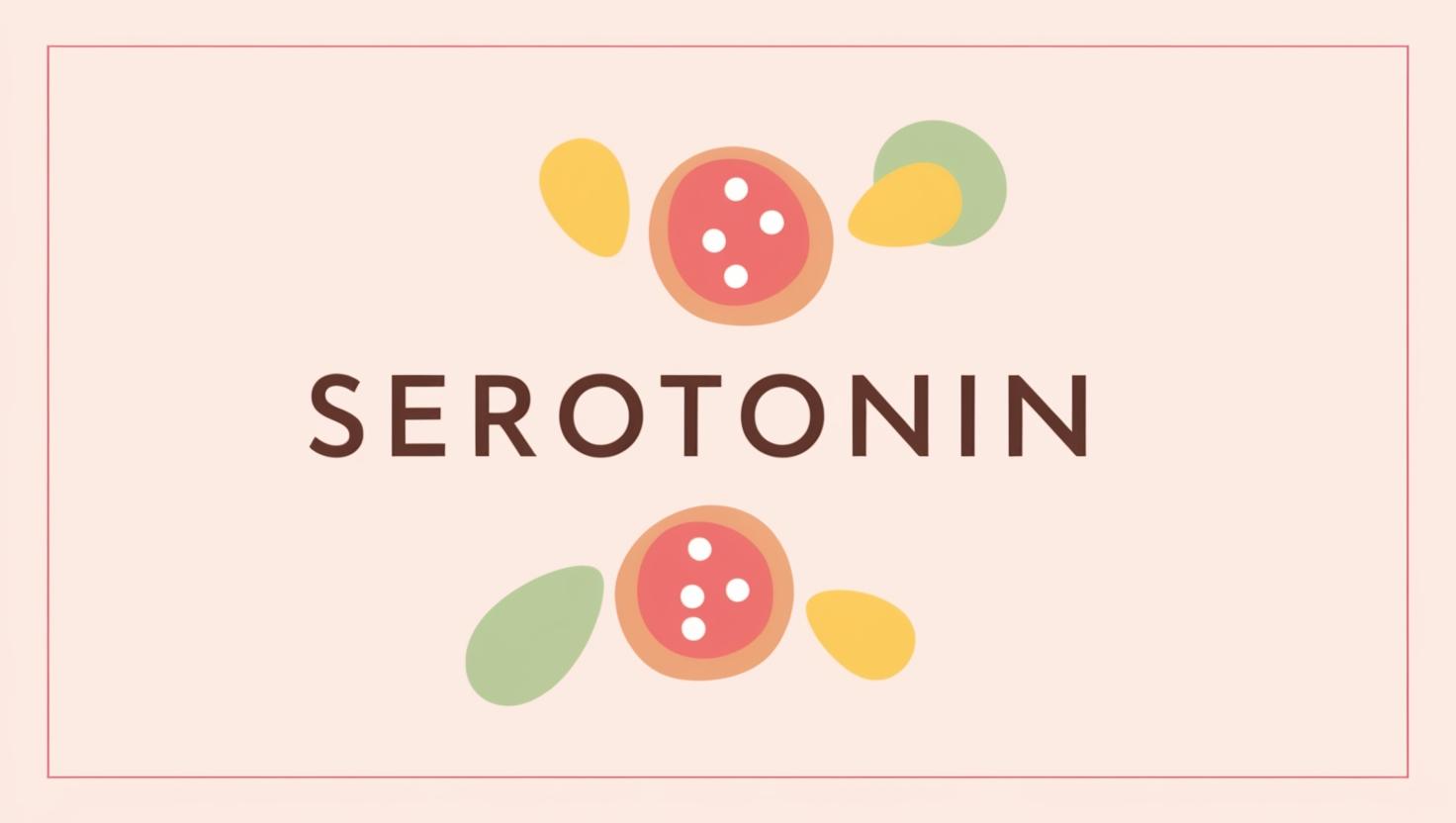
The deeper I dive into functional nutrition, the more I see how every system in the body is connected. Mood, energy, digestion, cravings—they’re not just random. They’re signals. And the more I’ve learned, the more I’ve realized just how much the gut-brain connection influences all of it.
For years, I dealt with what felt like separate issues—random mood swings, restless sleep, sugar cravings out of nowhere. I wasn’t struggling with major gut issues, so I didn’t even think about my digestion playing a role. But once I started learning about serotonin and how 90% of it is made in the gut, everything clicked.
When your gut is off, your mood, energy, and sleep take a hit. And when your brain chemistry is off, your digestion suffers. It’s a two-way street. That’s when I started paying more attention to the nutrients that support neurotransmitters like serotonin and dopamine—specifically 5-HTP, L-theanine, and L-tyrosine. Once I figured out how to use them strategically, things started to shift.
The gut and brain are constantly talking to each other through the vagus nerve, neurotransmitters, and gut bacteria. If one is out of balance, the other feels it.
Here’s how it works:
Serotonin (the “feel-good” neurotransmitter) is mostly produced in the gut, controlling mood, digestion, and sleep.
Dopamine (the motivation and focus neurotransmitter) is influenced by gut bacteria and nutrient availability.
The vagus nerve acts like a highway between the gut and brain, carrying messages about stress, hunger, and mood.
Inflammation in the gut can lead to brain fog, anxiety, and fatigue.
This explains why gut issues don’t just cause bloating—they impact energy, stress tolerance, and even how well you sleep.
Once I understood how important serotonin was, I started looking into ways to naturally support it. That’s where 5-HTPcame in. It’s a precursor to serotonin, meaning your body uses it to create more of this critical neurotransmitter.
After adding 5-HTP into my routine, I noticed:
More stable moods—no more feeling irritable for no reason.
Better sleep—finally staying asleep through the night.
Fewer sugar cravings—which I now realize were tied to low serotonin.
Better digestion—because serotonin also plays a big role in gut motility.
How to Use 5-HTP:
For sleep & digestion: Take 50-100mg in the evening.
For mood & cravings: Take in the morning or afternoon.
Caution: If you’re on SSRIs or antidepressants, talk to a doctor before using 5-HTP.
The 5-HTP I use: Find it here
Next, I started learning about L-theanine, an amino acid found in green tea that promotes relaxation without making you drowsy. It works by increasing alpha brain waves (which help with calm focus) and boosting GABA, serotonin, and dopamine.
Adding L-theanine made a noticeable difference in how I handled stress. It helped me feel calmer and more clear-headed, especially on busy days.
How to Use L-Theanine:
For stress & focus: 100-200mg in the morning or before a stressful situation.
For sleep: Pair with magnesium or 5-HTP at night.
The L-theanine I use: Find it here
While serotonin helps with mood and calm, dopamine is what drives motivation, focus, and energy. L-tyrosine is a precursor to dopamine, meaning your body uses it to create this powerful neurotransmitter.
I started using L-tyrosine on days when I needed extra mental clarity, especially before workouts or long work sessions. It made a huge difference in energy levels without the jittery feeling caffeine can sometimes bring.
How to Use L-Tyrosine:
For focus & energy: 500-1000mg in the morning.
For workouts: Take 30-60 minutes before exercise.
Caution: Too much can lead to overstimulation, so start low.
The L-tyrosine I use: Find it here
Yes—but with balance. 5-HTP, L-theanine, and L-tyrosine all play different roles in neurotransmitter support, and they can complement each other when used correctly.
Here’s what I’ve found works best:
For balanced mood & stress: 5-HTP + L-theanine
For focus & energy: L-tyrosine + L-theanine
For sleep & recovery: 5-HTP + L-theanine at night
Taking too much of any of these can throw things off. Too much 5-HTP can lead to excess serotonin (which can cause lethargy or digestive issues). Too much L-tyrosine can lead to overstimulation. It’s all about finding the right balance for your body.
The more I learn about functional nutrition, the more I realize how much we can influence our mood, energy, and overall well-being just by supporting our neurotransmitters properly.
If you’re struggling with brain fog, stress, low energy, or cravings, supporting serotonin and dopamine naturally might be the missing piece. These nutrients have been a game-changer for me and those close to me, and I hope they help you too.
If you try any of these, let me know how they work for you!
Stay balanced,
Kelly | KBalanced